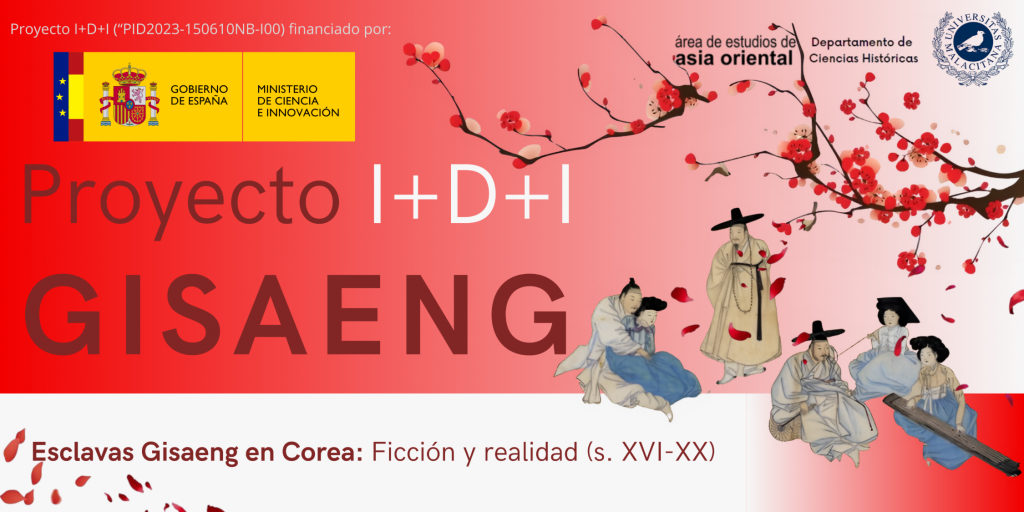
R&D Project (PID2023-150610NB-I00)
Project Title: Gisaeng Slave Women in Korea: Fiction and reality (16th–20th Centuries)
Acronym: Gisaeng
Principal Investigator: Aurelia Martín Casares
Project Context
The GISAENG project is an R&D&i initiative funded under Spain’s 2023 National Plan by the Ministry of Science and Innovation. It is affiliated with the Department of Historical Sciences – Area of East Asian Studies at the University of Málaga. The project’s main objective is to investigate the historical and social role of the gisaeng in Korea—a unique form of female slavery that reflects class and gender inequalities in Korean society. Unlike other forms of slavery known in the West, slavery in Korea was primarily debt-based, and gisaeng were women of enslaved origin trained to entertain noble men. Although they share some similarities with Japanese geishas, gisaeng maintain distinct features rooted in Korean culture.
This project will help consolidate a research line on slavery already initiated within the Area of East Asian Studies. It will also provide resources for the research team and establish a framework for future doctoral dissertations. The project’s Principal Investigator is a member of the UNESCO International Scientific Committee for the Slave Route, which aims to break the silence surrounding historical slavery and gender hierarchies. The project is structured around several work packages: historiography and academic production on the gisaeng, artistic production (poetry, painting, theatre, and dance), their representation in Korean literature and in yadam (classical Korean prose narratives), as well as life histories and the religiosity of enslaved women. The analysis will focus on the late Joseon dynasty and the 20th century, when gisaeng were emancipated following the 1894 Gabo Reform and began to work as actresses and artists.
Proyecto de I+D (PID2023-150610NB-I00) financiado por:

